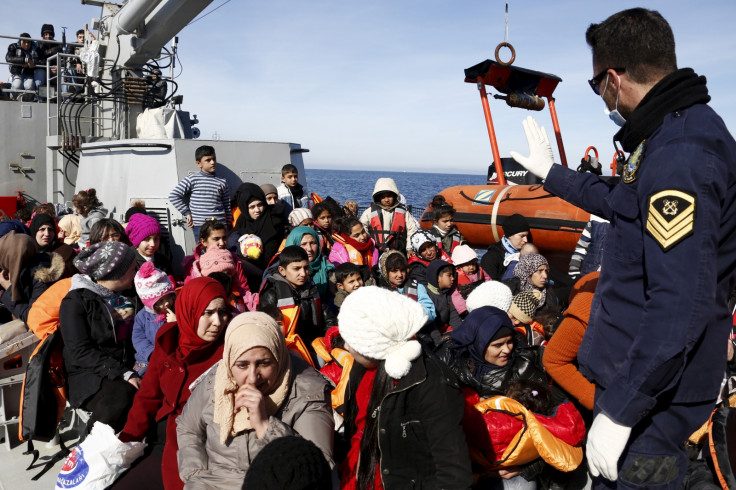Isis-threatened gay Syrian asylum seeker becomes first refugee to appeal to European Court after EU-Turkey deal
A gay Syrian man, who fled to Greece after threats from Islamic State (Isis) 'emissaries', is challenging his deportation to Turkey at the European Court of Human Rights - the first case since the EU –Turkey deal.
Under the new EU deal hammered out between German Chancellor Angela Merkel and Turkish President Tayyip Erdogan, Syrian migrants arriving in Greece from 20 March this year can now be sent back to Turkey if they do not apply for asylum or their claim is rejected.
The 46-year-old man had arrived on the Greek island of Lesbos on 29 March. The island has become a major stopping off point for Syrians, Afghans and other nationalities who cross the choppy Aegean Sea in their quest towards northern and central Europe.
The Greek asylum services and board of appeal rejected his asylum claim on the basis that the man had already lived in Turkey for several years so it was safe for him to return. He is reported to have worked between Turkey and Nigeria.
The board had previously approved all Syrian applicants, believing that Turkey was not a safe country for them to live in say, Pro Asyl, a refugee advocacy group listed 10 such decisions. On 2 June the Strasbourg-based European Court of Human Rights (ECHR) was asked to block the man's deportation.
Karl Kopp, European affairs director for German-based group Pro Asyl, said according to the AFP: "This is the first case under the EU-Turkey deal reaching the ECHR". Kopp added that "he fled head over heels by jumping from his kitchen window" after a Daesh (Isis) representative told him to return to Syria.
The EU is fighting to stem the flow of migrants to its borders and Pro Asyl, the Greek Council for Refugees and other human rights groups are providing legal assistance to asylum applicants who are fearful of returning to Turkey. Many migrants remain stranded at refugee camps in Greece.
On 3 June the Greek Coast Guard launched a major rescue operation to save 302 migrants after their boat capsized off the Mediterranean Island of Crete. The coast guard reported that it had pulled three bodies from the sea after the boat sank, with more fatalities possible.

© Copyright IBTimes 2025. All rights reserved.






















